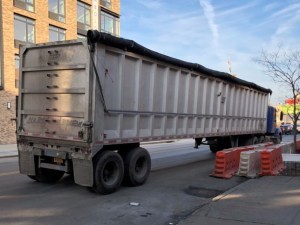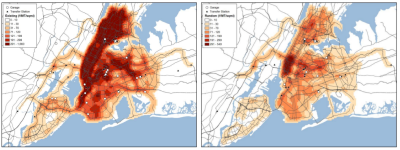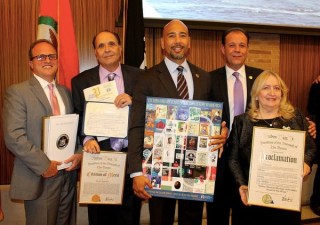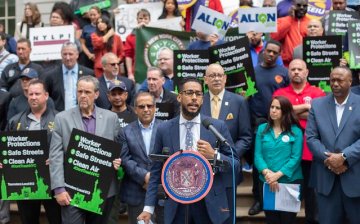City Council Votes to Reduce Garbage Truck Traffic in North Brooklyn, Southeast Queens, and the South Bronx
The Waste Equity Bill restricts the amount of garbage delivered to transfer stations in those three areas, which together process 75 percent of the city's trash.
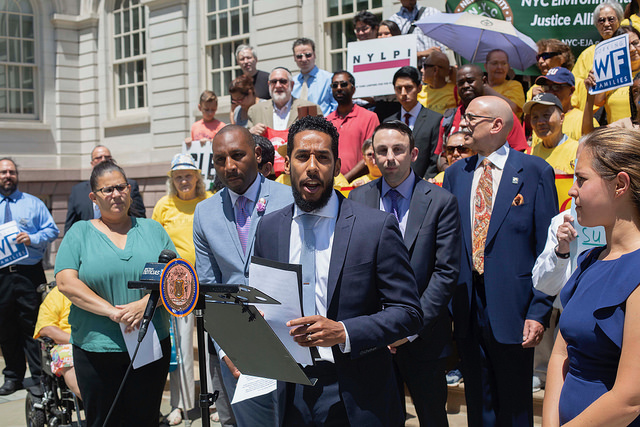
The City Council voted 32-13 today to reduce trash processing in North Brooklyn, southeast Queens, and the South Bronx, relieving the disproportionate burden of garbage truck traffic on those neighborhoods.
Known as the Waste Equity Bill, Intro. 157-C restricts the amount of garbage delivered to transfer stations in those three areas, which together process 75 percent of the city’s trash. Mayor de Blasio is expected to sign it into law.
The legislation reduces the permitted waste processing capacity in North Brooklyn by half, and the permitted capacity in the other two neighborhoods by a third. The mandates take effect on October 1, 2019, or the earliest date when nearby marine transfer terminals start processing residential trash, whichever comes later.
The bill also stipulates that none of the city’s 59 community board districts can process more than 10 percent of the city’s trash.
“Environmental racism has been a particularly insidious method through which historically disadvantages communities have been made to suffer because of the color of their skin,” Council Member Antonio Reynoso said before today’s vote. “Intro 157 will finally provide communities… a measure of relief in security. Furthermore, it will ensure that no other communities in the city of New York can become like mine.”
The bill has been in the works for nearly a decade. It builds on the Bloomberg administration’s 2006 Solid Waste Management Plan, which aimed to shift long-haul trash cargo from trucks on city streets to boats and trains. Complementary legislation from the council was supposed to reduce the amount of trash coming to transfer stations in the three target areas, but failed to gain traction until recent weeks.
A previous version of Intro. 157 died in committee last December after Council Member I. Daneek Miller, who represents part of southeast Queens, withdrew his support. Private carting businesses in his district opposed the measure. Miller voted against the bill again today, calling it “punitive and focused only on waste management.”
Also opposing the bill were Bronx council members Fernando Cabrera and Mark Gjonaj, who have received donations from Steven Squitieri, owner of Bronx-based carter Sanitation Salvage. The only change to the bill since December was the elimination of a carve-out exempting Sanitation Salvage from the mandates.
Cabrera explained his vote by saying the bill will result in the loss of jobs. But an environmental review by the Department of Sanitation found that the bill would result in just 13 jobs lost [PDF].
Other Bronx council members, including those with connections to the Squitieris, voted in favor of the bill.
Council Member Ruben Diaz Sr., who has not received donations from Sanitation Salvage, voted for the bill. He argued that regardless of the impact on local businesses, cleaner air and safer streets must take priority.
“We need jobs in the Bronx, but we must not exchange jobs for life,” he said.
